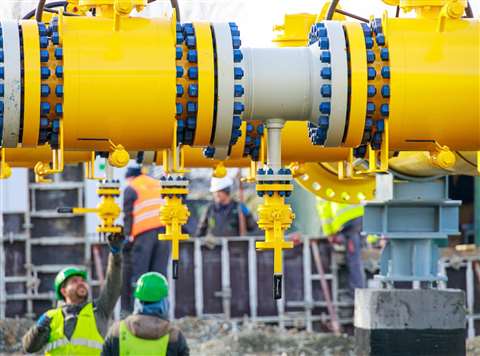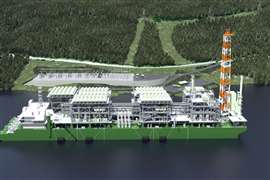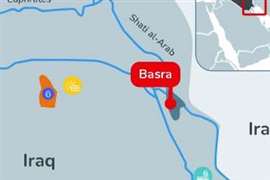Euro gas news: IGB pipeline could be delayed
March 22, 2022
 Construction crews work on the Interconnector Greece-Bulgaria (IGB) pipeline, which was 80% complete.
Construction crews work on the Interconnector Greece-Bulgaria (IGB) pipeline, which was 80% complete.
Start-up of the Interconnector Greece-Bulgaria (IGB) pipeline could be delayed until the fall of 2022. Citing the ICGB consortium’s executive officer in Bulgaria, Teodora Georgieva, local media reported in early March that a delay was possible.
According to Georgieva, the construction of a gas metering station in Komotini, Greece, is key to the timely start-up of the pipeline. ICGB is still aiming to place the project into service by July 1, but this deadline looks increasingly challenging.
The ICGB consortium said that all valves for the interconnector had been delivered, and that the Komotini metering station was around 50% complete while another metering station in Stara Zagora, Bulgaria, was roughly 80% complete.
Baltic Pipe obtains new Danish environmental permit
The Danish Environmental Protection Agency (DEPA) has issued a new environmental permit for the Baltic Pipe gas pipeline, which will carry gas from the Norwegian North Sea to Poland via Denmark. The move comes after the original permit was repealed by the Danish Environmental and Food Appeals Board in 2021. Energinet, which is building the Danish portion of the pipeline, said in a March 1 statement that it could now restart construction on portions of the projects that had been suspended since May 2021.
Work on a 40-km (25-mile) section of the pipeline in eastern Jutland from the Egtved compressor station to the Little Belt strait and a 38-km (24-mile) in western Funen from Middelfart to Brylle would start immediately, Energinet said. Construction on one of two 50-kV power cables supplying the new compressor station in Everdrup, Zealand, will also resume, the company added.
Energinet is aiming to place Baltic Pipe into partial service in October 2022.
GIPL partners expedite start-up
The Gas Interconnector Poland-Lithuania (GIPL) will enter service on May 1, ahead of the previously scheduled start-up date of mid-2022, the partners in the project have announced.
Poland’s Gaz-System and Lithuania’s Amber Grid said they were expediting the pipeline’s start-up on February 28, days after Russia launched its invasion of Ukraine.
“During the geopolitical tensions, linking the Baltic and Finnish gas markets with the European gas market guarantees energy security and independence for the entire region,” Lithuanian Minister of Energy Dainius Kreivys stated.
GIPL’s start-up will also allow Poland to ramp up shipments of gas that it receives as LNG to the Baltic countries.
The partners said the pipeline would initially flow at partial capacity before volumes are ramped up.
MAGAZINE
NEWSLETTER

CONNECT WITH THE TEAM








